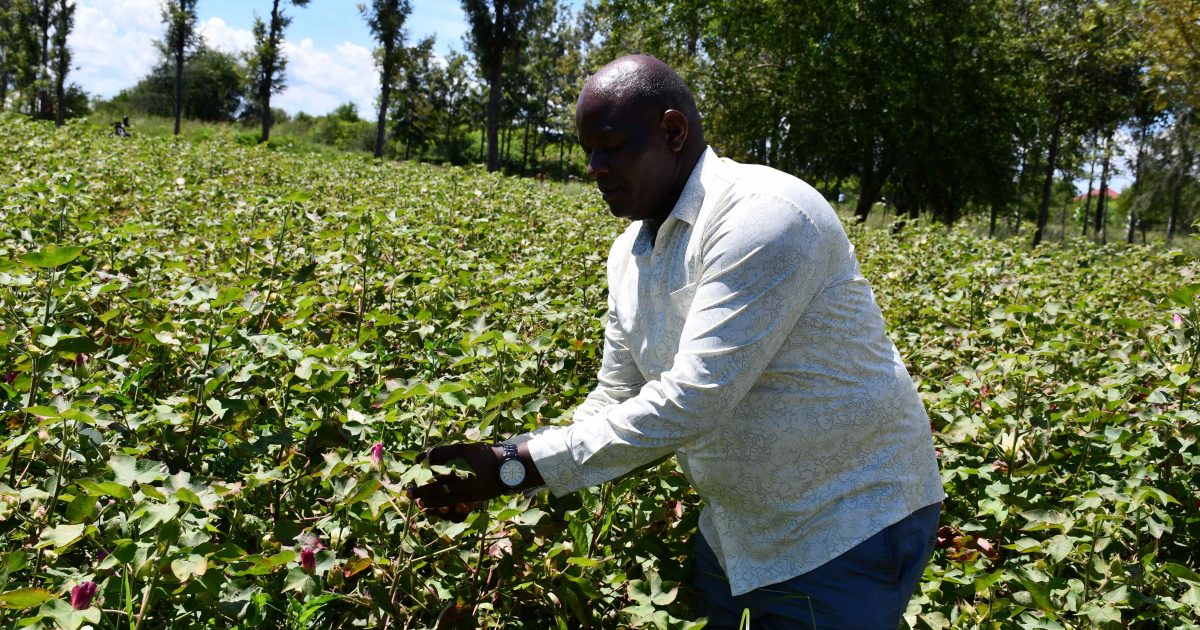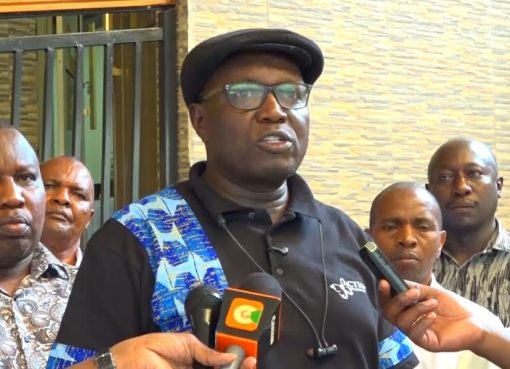The National Biosafety Authority (NBA) is organizing the 13th Annual Biosafety Conference to be held in Naivasha Sub-County, Nakuru County in the next two and a half weeks under the theme “13 years later: Building trust and ensuring the safety of Genetically Modified Organisms”.
The three-day conference is to provide a national platform for promoting public awareness and education on the role of modern biotechnology and biosafety.
Speaking to the Kenya News Agency (KNA) ahead of the conference, Acting Director of Biosafety Research and Compliance Josphat Muchiri said that the authority has been reaching out to the public to assure them that technologies they regulate, such as genetically modified organisms (GMOs) and also genomes, are safely deployed.
Muchiri said that there has been a lot of misinformation out there, especially on biotechnology products in the country, from many quarters, despite the authority which has been in place for 14 years trying to dispel many misconceptions
The NBA mandate is to regulate GMOs; there has been a lot of misinformation and disinformation on GMOs without members of the public knowing that the government has established structures for assurance of safety.
He explained that the government, through the NBA, ensures that any biotechnology is scrutinized, and once approved, the public then can be able to consume the products without any reservation.
Muchiri gave an example of the approved commercialization of BT cotton since 2020, and so far it is being cultivated in more than 23 counties nationally.
“We have been able to monitor the performance of the BT Cotton, and we have not seen any adverse effects that were not anticipated during our assessment. Farmers who have planted the BT cotton are happy. So far there is no regret in terms of the NBA decision to approve the BT cotton to go to the farmers,” he said.
He termed the BT cotton approval as one of the greatest achievements because of the comprehensive assessment and making BT cotton available to farmers, considering that cotton in the older years was a very big cash crop in most of the regions in the country.
Additionally, the director noted that they have been assessing the virus-resistant cassava, which is in its advanced stages of variety assessment, and once it is concluded, the varieties will be made available to the farmers.
Muchiri also explained the issue of BT maize trials, which has been very controversial, especially since it’s a staple crop in the country and is consumed in every household.
The BT Maize Research and Trias that have been running for over 12 years have been able to address the issue of pest such as stem borer and fall armyworm, and NBA has been engaged in the whole process and therefore guarantees that it is safe
NBA, he explained, is responsible for overseeing biosafety activities and issuing approvals for GMOs through various regulations covering various aspects of biosafety, including contained use, environmental release, import/export/transit, and labelling.
He, however, clarified that the BT maize is not being imposed on any farmer and that they have the option of either adopting BT maize or not.
One of the pillars of ensuring the safety of biotechnology products is post-commercialization monitoring, and the director said once the NBA approves a GMO product, monitoring of such products takes a maximum of 20 years.
“We already have our safety inspectors that we send to the farmers who are growing the BT cotton just to ensure that the technology is still working. So far, we have not been able to see or to get any report either from the farmers or from our biosafety inspectors on any adverse effect of the BT cotton. We will continue to monitor the BT cotton for the next 15 years, up to 2040,” Muchiri said.
He explained the Authority is guided by two pillars they use on assessment, and that is food safety assessment that ensures that the GMO does not exhibit toxic, allergenic characteristics by ensuring that the compositional and nutritional composition of the food has not been altered by the genetic modification.
The other is the environmental safety assessment, basically ensuring that the GMO would not harm the biodiversity; it would not harm bees or any other pest that was not targeted.
Although GMOs have been in space for more than 30 years, the director, however, warned that anyone who is undertaking research work on GMOs, especially at the university level, should get approval from the NBA, saying that conducting research without the authorization of the NBA and without the approval of administrative and legal actions will be taken against those institutions.
“We have so far registered five institutions. We did a public notification alerting these institutions that anyone or any scientist that is dealing with research on GMOs must get authorization from the NBA, and we will soon be sending our biosafety inspectors to all our universities to follow up,” he said.
NBA has also decentralized their services across the country with offices in Busia, Namanga, Taita Taveta, Lunga Lunga, and even Malaba, bringing regulatory services closer to wananchi.
The Authority has also been able to establish a molecular laboratory to test GMOs. “Initially, before this lab was opened in 2022, we used to outsource that service to other labs, and the NBA was not able to have control of the testing that was being done through outsourcing.
This upcoming conference, which is both national and international, will see delegates from all 47 counties participate. We will; we want to engage the public, farmers who are in BT Cotton cultivation, Cassava and even Maize to discuss the journey NBA has been and partnerships with the County Governments in areas such as Agriculture
“We expect scientists and policy makers, including our members of parliament as well as international speakers who will share their experience in terms of commercialization of these technologies in their countries,” Muchiri said.
Joel Ochieng, Programme Leader, Agricultural Biotechnology, University of Nairobi & Secretary General for the Kenya University Biotechnology Consortium (KUBICO), said as biotechnology and biosafety experts involved in training, research, and product development, the annual biosafety conference provides an opportunity to converse with the public on the research, development, and benefits of genetically engineered crops and livestock and to address concerns on safety and socioeconomics of the technology.
“Our research currently focuses on outcomes that align with climate change and resilience, applying biotechnology to improve food and nutritional security, mitigate footprints of agricultural practices and climate change, and invigorate public education for an enhanced understanding of biotechnology,” he told KNA.
In the last year, Dr Ochieng said that they have engaged political leaders, the youth, church leaders, doctors, clinical officers, nurses, and other healthcare professionals, and thus the conference provides the additional opportunity to engage the general public and a convening for extended public participation on products of genetic engineering.
“We will converse on how best to manage modern biotechnology products for the benefit of Kenya, especially as many of these products head to commercialization. As many more products emerge, especially in the food industry through modern biotechnology, it is essential to focus on public engagement and communication, national dialogue on stewardship, and public confidence and support, the KUBICO secretary said.
By Wangari Ndirangu





